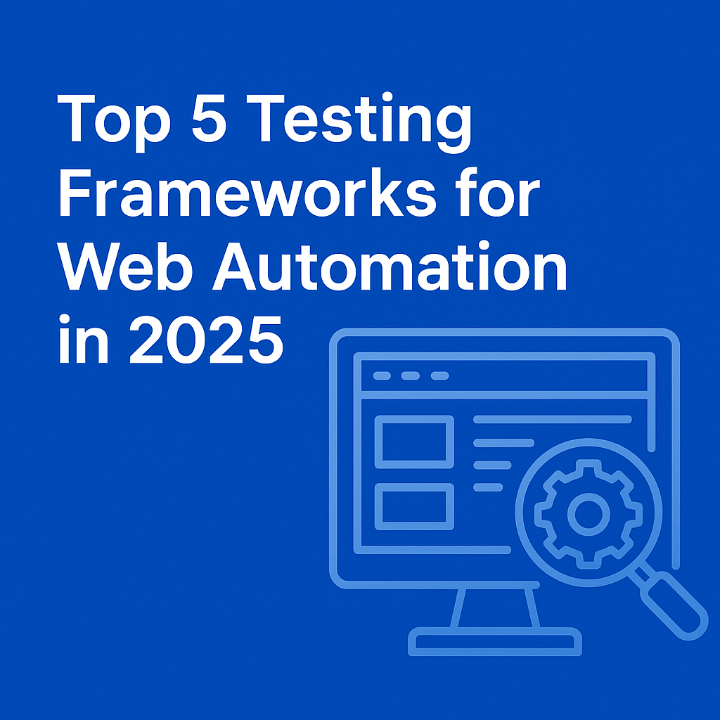 TESTING FRAMEWORK
TESTING FRAMEWORK Top 5 Testing Frameworks for Web Automation in 2025

Introduction
Web automation has shifted from just “making scripts run” to delivering reliable, maintainable, and scalable test systems. However, with weekly (or even daily) releases, flaky or slow tests aren’t just inconvenient—they can delay product launches.
Here are the top web automation frameworks of 2025, each with unique strengths that fit different team needs:
1. Selenium – The Veteran That Still Delivers
Selenium may be old, but it’s far from irrelevant. Its open-source flexibility, cross-browser coverage, and massive community support keep it in play. Many enterprises still rely on Selenium as their primary automation backbone.
Best for: Teams that value flexibility and long-term stability.
Pro tip: Combine Selenium with Grid or BrowserStack for parallel execution across environments.
2. Playwright – The New Standard
Playwright, from Microsoft, is quickly becoming the go-to choice for modern QA teams. Its auto-wait features eliminate flaky tests, and its cross-browser support is rock-solid.
Best for: Teams needing reliable, developer-friendly automation.
Example: QA engineers at startups love Playwright for its out-of-the-box parallelization and network mocking.
3. Cypress – A Frontend Developer Favorite
Cypress is built with developers in mind, making debugging a breeze with time-travel snapshots. It excels in modern JavaScript-heavy apps, which makes it a natural fit for agile frontend teams.
Best for: Agile teams testing React, Vue, or Angular apps.
Standout: Its ecosystem includes API testing, making it a multi-purpose choice.
4. Robot Framework – Keyword-Driven Simplicity
Not every team wants to code heavily. Robot Framework offers a keyword-driven style that makes tests readable, maintainable, and accessible even to non-coders.
Best for: Enterprises with testers from mixed technical backgrounds.
Bonus: Seamless integration with libraries like Selenium and Appium.
5. TestCafe – Lightweight & Fast
For teams that need fast automation without complex setups, TestCafe fits perfectly. No browser plugins required, no Selenium dependency—just install and test.
Best for: Small-to-mid sized QA teams.
Highlight: Easy parallelization makes TestCafe a good fit for CI/CD.
Wrapping Up
In 2025, there’s no single “best” framework. The strongest QA teams build hybrid stacks: Playwright for speed, Selenium for legacy, Cypress for frontend checks, and cloud tools like BrowserStack for scalability. However, the key is to pick tools that fit your workflow, not just follow trends.